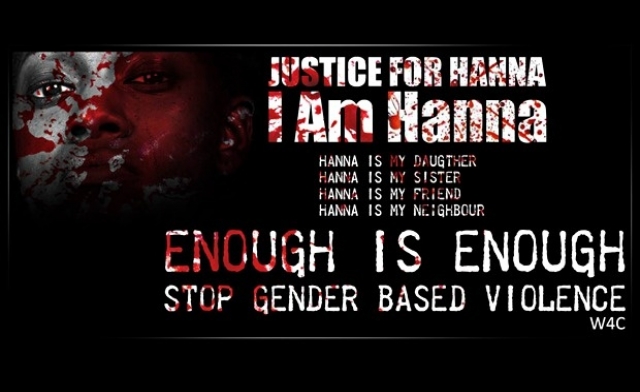 Justice for Hanna was launched after the murder of 16-year-old Hanna Lalango, who was repeatedly raped after being abducted in Addis Ababa. (Photograph: JusticeForHannah)
Justice for Hanna was launched after the murder of 16-year-old Hanna Lalango, who was repeatedly raped after being abducted in Addis Ababa. (Photograph: JusticeForHannah)
William Davison in Addis Ababa
Tuesday 27 January 2015
Tejnesh Leweg’neh, a 15-year-old from Ethiopia’s mountainous northern Shoa region, was abducted by three men on her way to market in October. They tried to force her to agree to marry one of them. She refused, and, a day later, they pushed her off a cliff. Now Tejnesh is paralysed from the waist down.
That same month, 16-year-old Hanna Lalango, from Ethiopia’s cosmopolitan capital, Addis Ababa, was abducted by a group of men from a minibus on the outskirts of the city. She was raped over several days and died in hospital about a month later from her injuries. Five men have been convicted and are awaiting sentence for the attack. Hanna reportedly identified her assailants before she died.
Both these crimes were brought to light by an energised network of mostly female Ethiopian activists trying to advance women’s rights and reduce sexual harassment in the Horn of Africa country.
“What united us is we believe this is our problem, it’s our responsibility to change this,” says one of them, Selam Mussie. “We all are Hannas – this could have been any of us.”
ussie, an administrator at the International Community School in Addis Ababa, is part of the Justice for Hanna campaign.
Activists view these violent attacks as a consequence of a culture that places women in subordinate positions to men, which often manifests itself in the form of the frequent petty harassment they endure on the capital’s streets.
“There are certain places that most of us are terrified of passing through because there are tens of men sitting around to purposely make a woman passerby uncomfortable,” says Mussie, 24. “It starts from common catcalls, to dissing, to a physical level where they could follow to grab or touch private parts.”
We believe this is our problem, it’s our responsibility to change it. We all are Hannas – this could have been any of us
Selam Mussie, Justice for Hanna campaign
Liya Hailemariam, a 24-year-old activist who works in PR, says she frequently suffers attention on public transport. “And it’s not just words – people somehow just slide in their hands,” she says. “We sort of consider it normal, we pass it off as this stupid guy, this pervert.”
Read more »
—
Join the conversation on Twitter and Facebook.

























